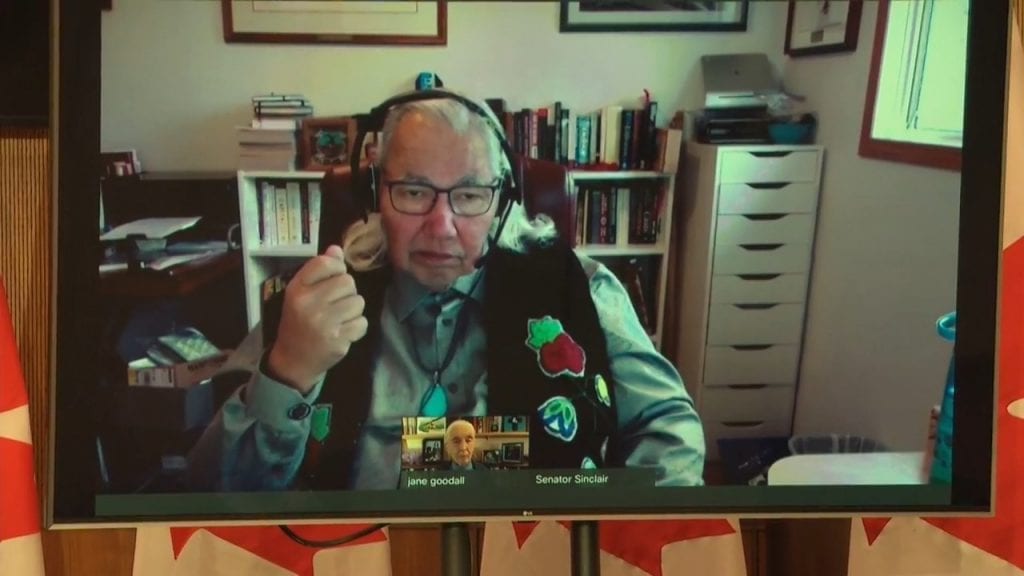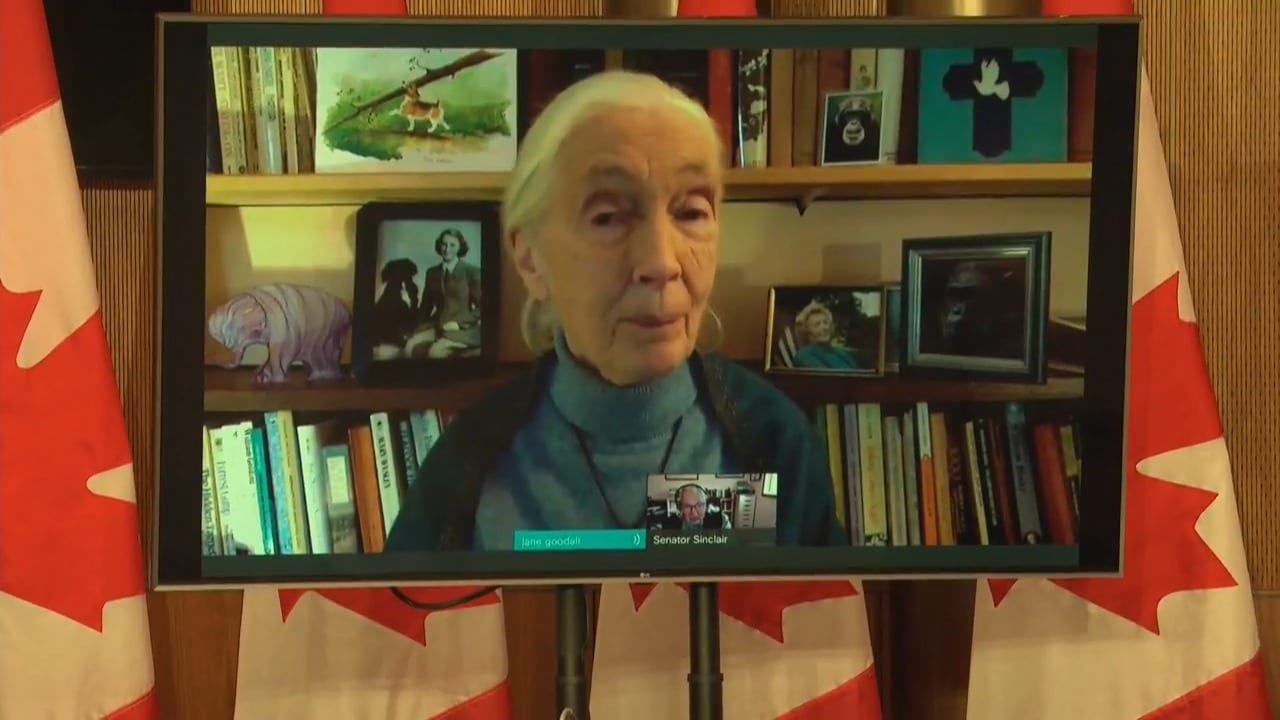
Senator Murray Sinclair talks to media via video call Tuesday.
Sen. Murray Sinclair has teamed up with primatologist Jane Goodall to propose a law to protect captive animals and ban imports of elephant ivory and hunting trophies into Canada.
“I’m introducing a bill in the Senate of Canada that will establish some of the strongest animal-protection laws in the world,” Sinclair told a news conference Tuesday.
“Certainly, the strongest animal-protection laws in Canada.”
Sinclair said his bill would ban new captivity of great apes and elephants unless it’s licensed and for their best interests, including for conservation or scientific research that doesn’t harm the animals.
The proposed legislation would also forbid the use of great apes and elephants in performances and establish legal standing for the protected animals.
That would allow courts to issue orders to move them to new care or to improve their living conditions.
The proposed legislation would also ban the importing of elephant ivory and hunting trophies, Sinclair said.
There are believed to be 20 elephants and 33 great apes living in captivity in Canada including nine chimpanzees, 18 gorillas and six orangutans.
“Zoos and other entities that currently have animals in captivity, they will not be allowed to bring in new animals, but the animals that they currently have, they can continue to maintain,” Sinclair said in an interview Tuesday.
“But (zoos and other places with captive animals) will be probably more closely regulated for purposes of ensuring safety in the best interests of the animals that they have. That’s currently not now the case.”
He said the bill is based on the principle that animals have rights.
“That’s the principle that some people have a difficult time getting their heads around,” he said. “At the very least, (animals) have the right to personal safety and protection. They have the right to be treated humanely.”
The proposed legislation will be called the Jane Goodall Act, named for the primatologist best known for her 60-year study of social and family interactions among wild chimpanzees.
Sinclair called her “a hero to animals and animal-rights advocates, to the environment and to my grandchildren.”

Speaking in the news conference Tuesday, Goodall said it’s tremendously important to recognize that these animals have feelings and personalities.
“Some people torture animals. It’s because they don’t understand. Other people deliberately choose not to understand how (animals) feel pain and fear and distress,” she said. “A lot of education is needed.”
Goodall said she feels honoured that this bill is named for her. “It would be just wonderful if this bill is passed, so that Canada can prove that it is on the forefront of humane treatment of animals.”
Sinclair, who was chief commissioner of the Truth and Reconciliation Commission that investigated and documented the history and legacy of residential schools in Canada, said the bill also reflects Indigenous values.
That includes “respect and stewardship and our relationship and connection to the natural world,” he said.
The senator said the bill builds on a law the federal government passed last year that bans whale and dolphin captivity in Canada.
He said expects enough support for this legislation in the Senate to pass it quickly. He also expects support for the bill in the House of Commons.
“During the last (Parliamentary) session, the whales and dolphins bill enjoyed general support from the New Democrats and the Liberal party, as well as the Green party,” Sinclair said. “We think that those parties still enjoy the control of the House and so therefore, we expect that there will be widespread support enough for the bill to enjoy passage through the House.”
The bill would empower the government to extend all the protections to other species of captive, non-domesticated animals _ such as big cats _ through regulations.
Sinclair said the bill is not at odds with all zoos.
“Zoos are potential partners in establishing legal protections for captive animals,” he said.
“I like to point out that Toronto Zoo and the Calgary Zoo have taken steps already to protect these animals and ensure that they are not maintained in captivity in Canada any longer.”
He said zoos are readily moving toward the idea of establishing sanctuaries that would have more space for the animals to allow them better access to healthier environments.
“It’s a direction that zoos themselves have been taking in response to public outcries,” he said.










